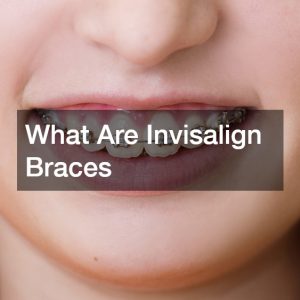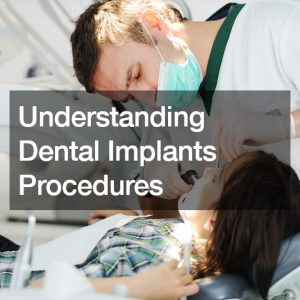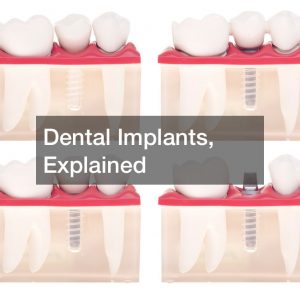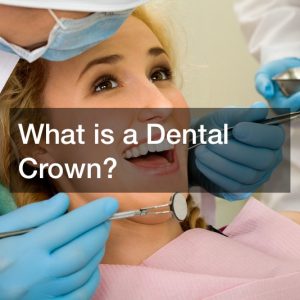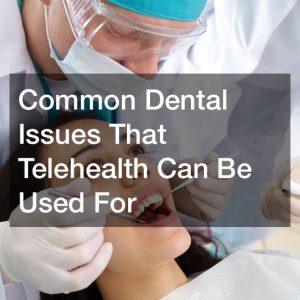The importance of oral care can’t be stressed enough. Maintaining good oral health isn’t just about having a beautiful smile; it’s a critical component of overall health and well-being. Ignoring regular dental check-ups and neglecting oral care can have far-reaching consequences for your overall health. There are many reasons why you should take the importance of oral care seriously.
1. Your Physical Health

The importance of oral care is well established. When you neglect your oral health care you are putting your health at risk. One of the most significant risks of skipping dental visits is the development of dental problems like cavities, gum disease, and infections. These issues, if left untreated, can lead to tooth loss, chronic pain, and a reduced quality of life. However, the repercussions go beyond oral discomfort.
Several studies have shown that oral health is interconnected with various systemic health conditions. One prominent example is the link between gum disease (periodontitis) and systemic diseases like heart disease and diabetes. The chronic inflammation associated with gum disease can contribute to inflammation in other parts of the body, which is a known risk factor for heart disease. It’s essential that you receive gum disease treatment to reduce the risk of serious physical health problems.
Poor oral health has been associated with respiratory infections, including pneumonia. The oral cavity can be a breeding ground for harmful bacteria that may be inhaled into the lungs. The consequences are especially concerning for vulnerable populations like the elderly or individuals with compromised immune systems. These health issues are only part of the reason why you need to see the dentist regularly and fully understand the importance of oral care.
2. Potential Tooth Loss
When dental issues like cavities or gum disease are left untreated, they can progress to the point where tooth loss becomes inevitable. Tooth loss, beyond aesthetic concerns, can affect your ability to chew and speak properly. Moreover, the gaps left by missing teeth can lead to the shifting of adjacent teeth, changes in your bite, and even jawbone deterioration. A missing tooth or teeth can affect your mental health.
Restoration dentistry is often necessary to restore missing teeth to promote good oral health. Ignoring dental care and allowing tooth loss can have serious consequences for your oral health and overall well-being. It is vital to your overall health to have your missing teeth replaced. A dental professional can provide you with options for restoring your teeth.
Dental implants are the state-of-the-art treatment option for restoring missing teeth. Implants are not only natural looking but because of the way they are structured they bring health benefits. Implants can prevent bone loss and keep surrounding teeth healthy. When you ignore the importance of oral care and dental restoration, the dental problems only get worse.
3. Bone Loss

While implants are a great restorative option if you have not acknowledged the importance of oral care for a long time, you may experience bone loss making implants much more difficult. When teeth are lost, the jawbone in the area begins to deteriorate over time due to a lack of stimulation from chewing and biting. This bone loss can lead to a sunken facial appearance, difficulties in speaking and eating, and a reduced quality of life.
Oral bone loss is a serious concern, but it’s not a life sentence. Affordable dentures offer an accessible way to address the consequences of missing teeth, allowing you to regain oral function, and improve your smile. Dentures can provide you with the solution that you need if you are dealing with bone loss and are not a candidate for implants.
Dentures can be more affordable than implants, and less invasive. There are many reasons that people choose dentures to restore their oral health. The importance of oral care is directly tied to your quality of life. Taking care of your teeth or taking steps now to improve your oral health can reduce the risk of serious health consequences.
3. Early Intervention
A tongue tie, clinically known as ankyloglossia, is a condition in which the band of tissue beneath the tongue (lingual frenulum) is unusually short. It restricts the normal range of motion of the tongue. This condition can affect both infants and adults. It can lead to various issues such as speech problems, eating issues, and potential oral health problems.
When people consider the importance of oral care, they typically think of a bright brilliant smile. However, oral health care is not just about caring for your teeth. Dental experts are charged with caring for the entire mouth including the tongue, gums, structure, bones, and more. The importance of oral care from an early age is well-documented.
Being tongue-tied is something that is present at birth and there are treatments that can rectify the problem. However, without professional oral care, the problem can’t be detected, and therefore it can’t be treated. If you suspect you have this condition, the best way to manage it is to get to the dental office. The dental professional will have solutions.
4. Mouth Pain

Mouth pain from poor oral health can be debilitating. Over-the-counter medications can only do so much in controlling mouth pain. Finding the cause of the pain and treating the cause is the only way to get rid of mouth pain permanently. The importance of oral care really hits home when you are suffering from painful mouth conditions.
Dental neglect, characterized by the failure to seek regular dental check-ups and address oral health issues promptly, can lead to significant oral pain and a host of complications. Ignoring dental care can result in oral discomfort, impact overall health, and even lead to more extensive and costly treatments in the long run. One of the most common consequences of dental neglect is oral pain.
This pain can manifest in various forms, such as toothaches, gum, or jaw pain. You may also develop headaches, neck pain, and facial pain that medical doctors cannot fix. You need to see a dentist to get the pain under control and treat the infected area. If you have ever suffered with a toothache or other oral pain you likely are well aware of the importance of oral care and what happens when it is ignored.
5. Preventive Care
The single best way to avoid health problems and painful dental infections is to get professional preventative dental care. There are so many good reasons to get preventive care for your oral health. The most prominent reason is to avoid dental and oral health issues, but that is certainly not the only reason. Preventive dental care is the cornerstone of maintaining optimal oral health.
When you take the importance of oral care seriously, you can save money. Preventive treatments are far less costly than restoration. Dentists can detect issues in their earliest stages through routine check-ups and diagnostic tools like X-rays. This allows for less invasive and more cost-effective treatments.
Dentists tailor preventive care plans to each individual’s specific needs. This includes addressing risk factors like smoking, diet, and medical conditions that may affect oral health. Preventive care helps reduce the risk of common oral health problems, including cavities, gum disease, and oral cancer. Early detection and intervention can also reduce the risk of severe, painful complications.
6. Mental Health

Your mental health and oral health are interconnected. It is now widely recognized by healthcare providers that these two aspects of our well-being are related, and the state of one can significantly impact the other. How you feel about your smile can profoundly impact self-esteem and self-confidence. People who are self-conscious about their teeth may avoid social interactions and self-isolation.
Dental problems such as toothaches, gum disease, or oral infections can cause severe pain and discomfort. The pain can be very difficult to manage and can impact every area of your life. Chronic pain can lead to anxiety and depression. The constant discomfort takes a toll on a person’s mental health. Research suggests that inflammation in the body, often associated with oral health problems, may play a role in developing mental health conditions, including depression.
There are ways you can improve your smile and improve your mental health. For example, custom Invisalign bracing systems are helping adults to get the smile they always wanted. Dental health care can stop pain and reduce inflammation, reducing the risk of developing serious mental health problems. You can get the confidence boost that you need. The importance of oral care and its effect on mental health can’t be denied.
7. Early Detection
When you visit your dental office for care, the exam looks for dental cavities, and includes a look at the tongue, gums, and cheeks. The dental professional considers the entire mouth when they are conducting an exam. The exam also screens for cancer and may result in a referral to a throat doctor if the screen determines that there may be signs of oral cancer. The mouth is not exclusive from the rest of your body, and it certainly is not exclusive from your throat.
However, it is not only cancer that dentists screen for. In some cases, during a dental exam, a dentist might notice issues related to the throat or airway, and this can lead to a referral to an otolaryngologist. A doctor who specializes in the throat will do further exams to determine a diagnosis and develop a potential treatment plan. These two professionals collaborate to ensure that patients are getting the best treatment.
Early detection of any health problem is essential to the success of the treatment. Dentists are well aware of the intimate relationship between oral health and systemic health. The mouth is a window to the body’s overall well-being. Conditions such as infections, inflammation, or even cancers in the throat and airway can manifest with symptoms or signs that can be detected during a dental examination. Ignoring the importance of oral care can have dire consequences when it comes to your overall health.
8. Digestion Problems
Your teeth and jaw are the first step in your digestive system. Teeth grind and tear food into manageable chunks for your digestive system. When your teeth are not in good condition, it can be difficult to eat foods that are nutritionally dense, like leafy greens. The role of teeth in the digestive system is often underestimated, but it is a critical component of the digestive process.
Teeth are primarily responsible for mechanical digestion, the process of physically breaking down food into smaller particles. When you chew, your teeth cut, grind, and crush food into smaller fragments. This initial breakdown increases the surface area of the food, making it easier for digestive enzymes to access and break down nutrients.
Chewing is responsible for producing saliva. Saliva is an essential part of breaking down food and starting the digestion process to remove nutrients. Saliva contains amylase an important protein in digestion. Amylase begins the chemical digestion of carbohydrates by breaking down starches into simpler sugars. This is the first step in nutrient breakdown, which continues in the stomach and small intestine. When you have oral health problems, properly chewing your food can be difficult which can in turn disrupt the digestive system.
Most people don’t realize how important oral health is to their overall health. Good oral health can support good overall health. Likewise, poor oral health can put you at risk fo developing serious health problems. It’s important that everyone gets good oral health care.
If you have neglected your oral health, you can regain your oral health by making a dental appointment. There are treatments available that can put an end to painful dental conditions, improve oral health, restore your teeth, and more. Take the first step today to make oral health a priority. Make an appointment. You will be glad you did.


